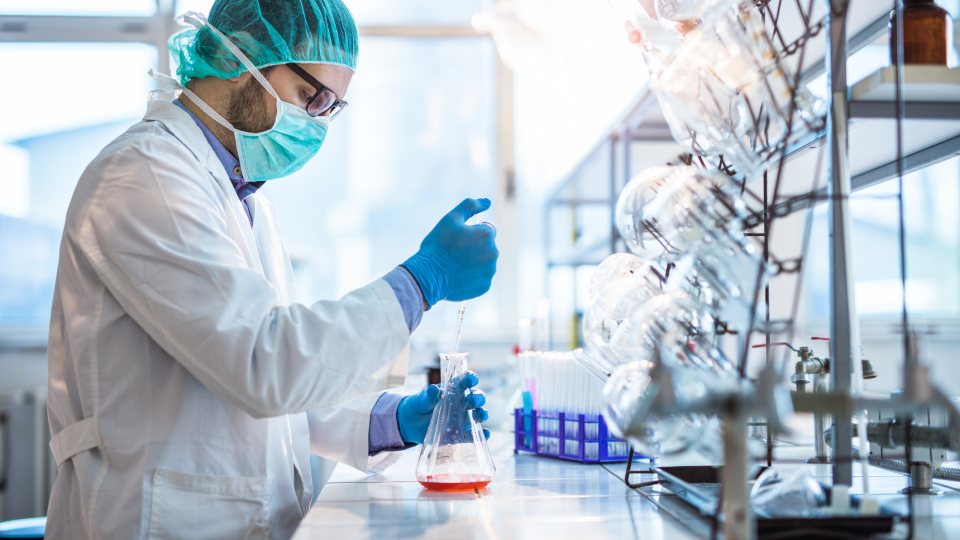The UK boasts a distinctive and globally competitive life sciences ecosystem that thrives on collaboration between industry, academia, government, the NHS, and various health funders.
Healthcare and life sciences
The UK serves as a global hub for life sciences, ranking second only to the USA in terms of life sciences inward investment and leading Europe in life sciences finance. It offers a well-connected and forward-thinking industry cluster that facilitates connections between investors, customers, collaborators, supply chains, and innovation partners.
The life sciences sector in the UK benefits from collaborative efforts between the government and industry, as exemplified by a new long-term Life Sciences Vision. The country offers a competitive business and regulatory environment, alongside a world-class foundation in biomedical science. Investors in the UK have access to exceptional talent, robust health research infrastructure, and a collaborative partnership approach with the national health system.

Opportunity highlights
The UK’s thriving life sciences sector boasts over 5,600 businesses, including all of the top 25 global pharmaceutical companies and the top 30 global medical technology companies. More than 250,000 people are directly employed in the industry, making it a hub for global talent. The UK offers abundant strengths and opportunities across various life sciences segments and sub-sectors.
Biopharmaceuticals
The UK is a premier location for researching, developing, and manufacturing biopharmaceutical products. It possesses the strongest biomedical pipeline in Europe and excels in life sciences finance and start-ups. Opportunities for investors exist in areas such as genomics, precision medicine, cell and gene therapies, medicines and vaccine manufacturing, drug discovery, clinical research, AI and data science, and synthetic biology.
MedTech
The UK is home to one of the world’s largest medical technology (MedTech) industries and leads in research capabilities. Its top-tier universities attract global talent and have a history of pioneering medical innovations. Government-funded infrastructure dedicated to MedTech is available for collaboration with industry. Opportunities for investors and businesses lie in developing and delivering innovative medical technologies integrated with digital health solutions, covering medical devices, genomics, and advanced diagnostics.
Precision Medicine
The UK’s precision medicine ecosystem provides innovators with excellent research capabilities, leading infrastructure, and a supportive business environment. This dynamic industry spans diagnostics, genomics, targeted treatments, and related technologies and services, offering ample opportunities for businesses.
Commercial maturity
The UK leads Europe in biotech product development, with a greater number of products in the pipeline compared to any other country on the continent. This sector generates a substantial turnover of £80 billion and exports amounting to £30 billion. The UK has a well-established record of scientific breakthroughs and is guided by a new long-term Life Sciences Vision, which outlines the direction and initiatives for the coming decade.
The National Health Service (NHS) serves not only as a significant purchaser of life sciences products and services but also as a collaborative innovation partner for the development and delivery of advancements in this field. The UK’s regulatory and health leadership, combined with a global trade approach, facilitates the dissemination of UK life sciences and health solutions to the international stage.
UK assets
The UK’s Department for International Trade (DIT) has identified High Potential Opportunities to encourage and facilitate inward investment into various regions across the country. These opportunities span a range of life sciences sectors:
Biomanufacturing – Tees Valley
The Tees Valley region offers companies the chance to be a part of one of the UK’s largest industrial complexes, thanks to its dense, highly-integrated ecosystem. It is home to the National Horizons Centre and the Centre for Process Innovation, providing expert support and skills development in biomanufacturing.
Cell and gene therapy – Hertfordshire
Hertfordshire is at the forefront of Europe’s leading cluster for cell and gene therapies, meeting the increasing national and international demand. It provides support for product development across all stages, from research to manufacturing and commercialization.
Data-driven health innovation – Birmingham
Birmingham leverages its world-leading academic and clinical strengths in data, digital, diagnostics, and devices to transform innovative, patient-centered healthcare solutions from early development to real-life application.
Diagnostics and early intervention – Greater Manchester, Cheshire, and Warrington
These regions offer well-established clusters that connect investors with customers, collaborators, supply chains, and innovation partners. Combined with a unique life sciences ecosystem and government-industry commitment, Greater Manchester, Cheshire, and Warrington serve as an ideal test bed for global market development.
Precision medicine – Scotland
Scotland provides a platform to design, develop, validate, and implement precision medicine applications in an integrated healthcare environment for global commercialization. Access to Scotland’s extensive healthcare data, including 30 years of patient demographic information, supports precision medicine endeavors.
Rehabilitation – Leicester and Leicestershire
This region boasts a connected rehabilitation ecosystem with incubators and accelerators to support business growth, a strong academic and clinical research base, a diverse patient base, and expertise in AI and health data to develop solutions for real-world applications.
R&D capability
The UK is a global leader in scientific exploration, invention, and innovation, ensuring the future of its already highly productive science base. The commitment to increase R&D spending to 2.4% of GDP by 2027 reinforces this trajectory.
Biopharmaceutical companies in the UK benefit from both generous government support and tax relief, while also having access to private sector finance. Life sciences financing in the UK has seen remarkable growth, increasing by 1000% from 2012 to the present.
The UK has a rich history of scientific achievement, with researchers and institutions winning numerous Nobel Prizes and pioneering major scientific breakthroughs. These achievements include the discovery of penicillin, the structure of DNA, advances in neuroscience and medical imaging, developments in stem cells and IVF, as well as the application of artificial intelligence and data science to biological challenges. This robust science base is further strengthened by partnerships with government, industry, and the third sector.
Business and government support
The UK’s Life Sciences Vision outlines a 10-year plan to position the country as a global leader in life science investment and innovation. This vision focuses on three key policy areas:
Science and Research
The goal is to make the UK the world’s premier location for large-scale product trials and testing, driven by an ever-improving genomic and health data infrastructure.
NHS as an Innovation Partner
The National Health Service (NHS) is aimed to become a major catalyst for innovation by facilitating the development, testing, and adoption of new technologies at a population scale. The objective is to use technology to enhance diagnosis and treatment, ensuring accuracy and effectiveness.
Business Environment
The plan aims to create an exceptional business environment for life science companies. This is to be supported by a world-class regulatory framework and the presence of the City of London as a global financial hub.
The Life Sciences Vision also proposes seven healthcare missions to achieve rapid advancements in critical areas, including cancer, dementia, obesity, mental health, vaccines, respiratory diseases, and aging. These missions are designed to drive progress and innovation in these specific health-related fields.



